Presentation:
The OHC 10th Anniversary Celebration

On November 30, 2023, the University of Winnipeg Oral History Centre celebrated its 10th Anniversary, inviting three UWinnipeg alumni to share their continuing work in oral history, and afterward hosting a reception in the OHC Classroom in Bryce Hall.
Founding Directors Alex Freund and Nolan Reilly established the OHC in 2013, envisioning it as a national leader and global innovator in oral history teaching and research, where through collaborative community-based research, oral history practitioners could work toward the ideals of democratizing history and social justice in a globalizing world.
Over the course of 10 years, staff at the OHC has worked in providing educational and skill building opportunities for academic and community oral history practitioners. Since 2015, the Centre’s Intro to Oral History public workshop series has been attended by over 500 people. The addition of technical workshops including Audio Editing, Podcasting, and Digitizing Audio have created opportunities for anyone interested—whether oral historians or not—to continue developing their skillset.
Our work at the OHC has provided us with opportunities to learn about the oral history research happening around us, and to collaborate with so many practitioners doing marvelous work. Locally, the OHC has been invited into classrooms at UWinnipeg and the University of Manitoba, into community organizations and other local museums, galleries and community centres, and has traveled nationally and internationally (whether virtually or in person) both to share our knowledge and to learn from our collaborators and contemporaries.
This has led to many long-term partnerships with community groups and academic organizations, such as the Manitoba League of Persons with Disabilities, the Winnipeg Architecture Foundation, and the Community-Based Research and Training Centre here at UWinnipeg. We are proud of our role in facilitating so many meaningful oral history projects in the province. During the event, we showcased a few of these projects with displays in our computer lab highlighting our involvement in the Manitoba Food History Project, the UW Research Question (RQ) podcast, and a few others.
Our 10th anniversary celebration was a celebration of this wider community of oral history practitioners, who continue to make meaningful contributions to oral history scholarship, to communities, and to history. In light of this, we invited three UWinnipeg alumni to EG Hall to share their oral history initiatives and research as part of this celebration:
Marieke Gruwel, Executive Director of the Winnipeg Architecture Foundation, spoke about the development of the WAF oral history program; Brielle Beaudin-Reimer, CEO and President of Sage Research and Consulting Inc., spoke about the importance of oral history in the absence of more traditional records in the creation of community-led Métis research. And Darlyne Bautista, a PhD student in History at the University of Toronto, spoke about the “transnational affect” and “intergenerational care” evident in the oral narratives of Winnipeg Filipina garment recruits of the 1960s and 1970s.
The importance of this wider community of practitioners in pursuing the ideals of democratizing history and working toward social justice cannot be overstated. Recorded history has traditionally been steeped in power dynamics and colonialism. Through the work of oral history practitioners in capturing stories from the past from all segments of society, gaps in public knowledge may be filled and the historical record is consequently diversified and made more inclusive.
Since its inception, the OHC has been devoted to collecting oral history, but has emphasized the importance of long-term preservation of oral history records. At the Centre, we have also been working to ensure that the work of oral history practitioners, and the stories they have recorded, will be preserved for future generations to hear, and discoverable to future researchers and the communities and families who shared them.
We celebrated this too by announcing the launch of the Oral History Centre Archives online, a sister-site to the main OHC website, dedicated to supporting the discoverability of oral history collections we house in our OHC Archives, and to facilitating easy online access to oral history records where possible.
Our sincerest thanks to everyone who attended. We are so grateful to have celebrated this milestone in the company of so many who have supported us over the past decade. We also appreciated the opportunity to connect with many folks who were introduced to the OHC for the first time. We hope that one of the outcomes of the event will be the formation of new partnerships that will result in the creation and propagation of new stories for future research.
We are so privileged to be part of an ever-growing, diverse community of oral historians who share our vision. We are so grateful for your support and the trust you place in us.
Thank you to our guest speakers for allowing us to share their presentations here.
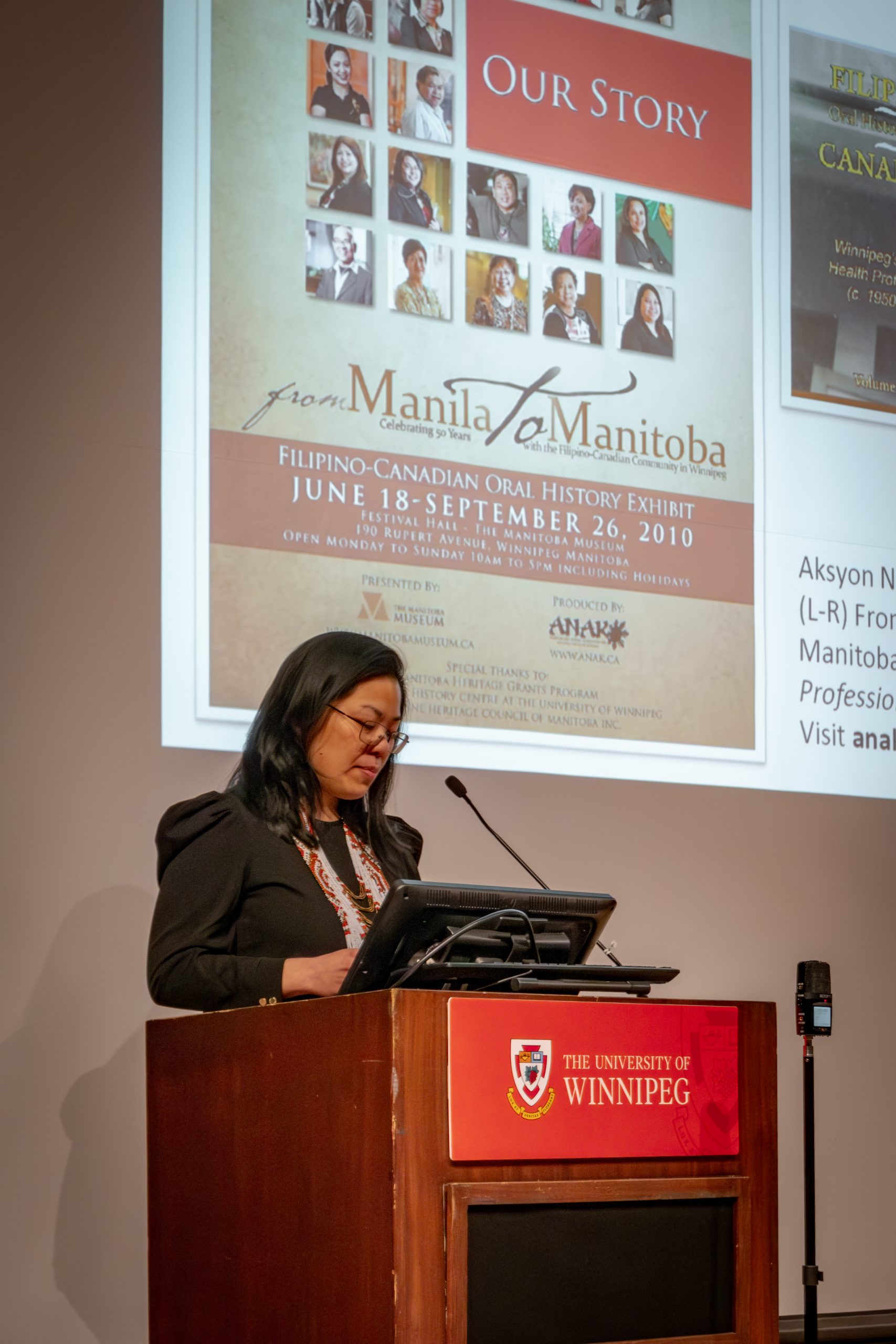
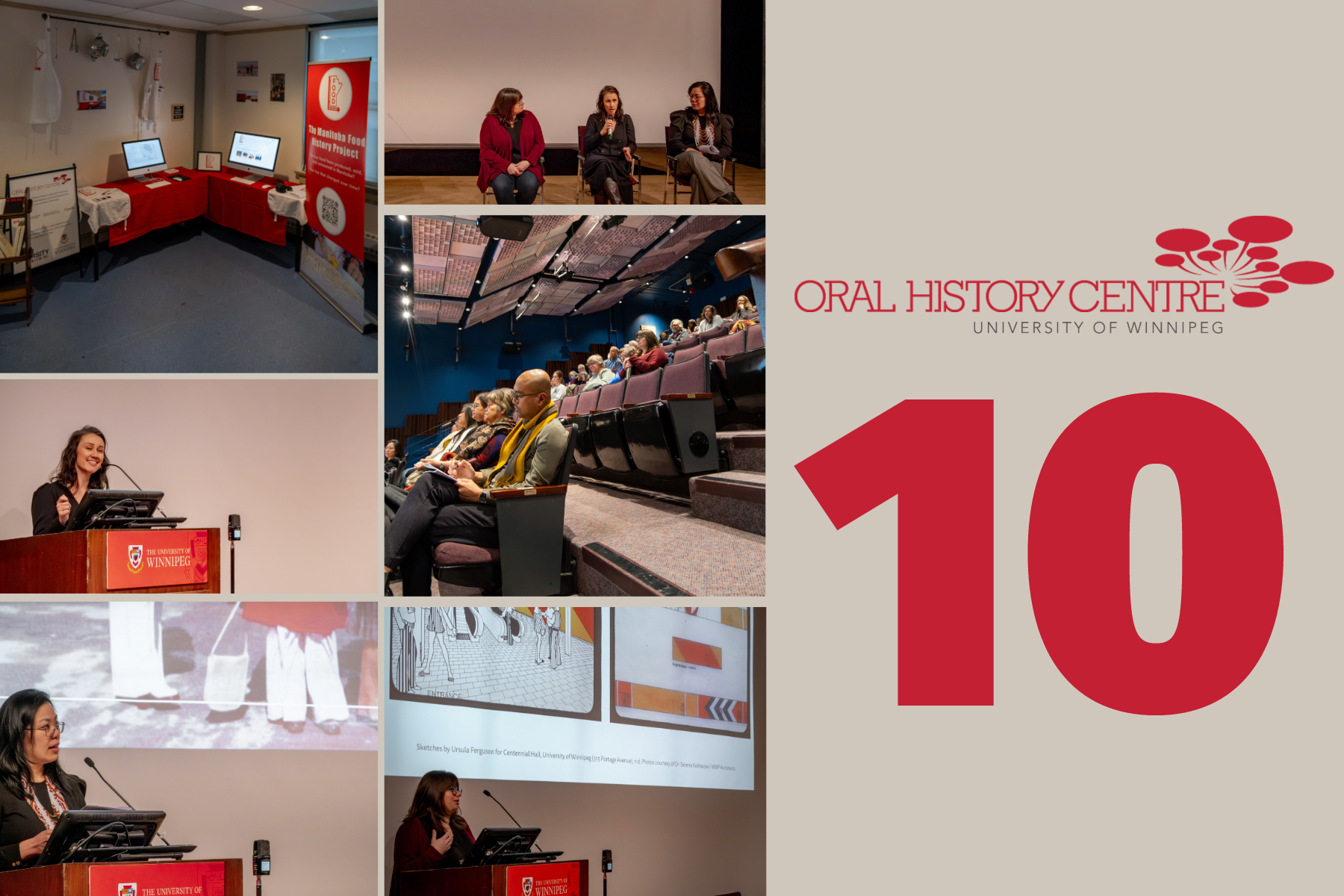
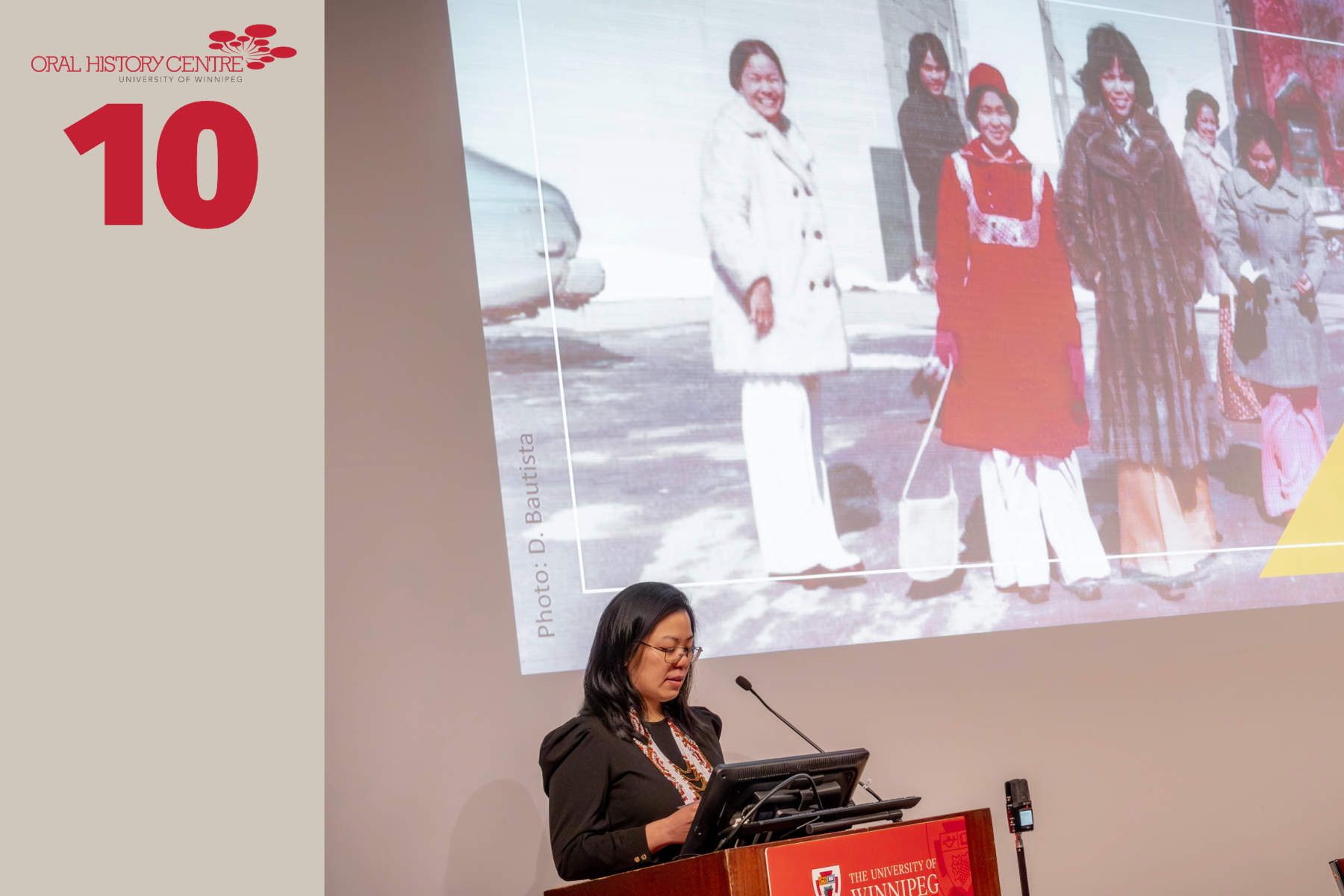

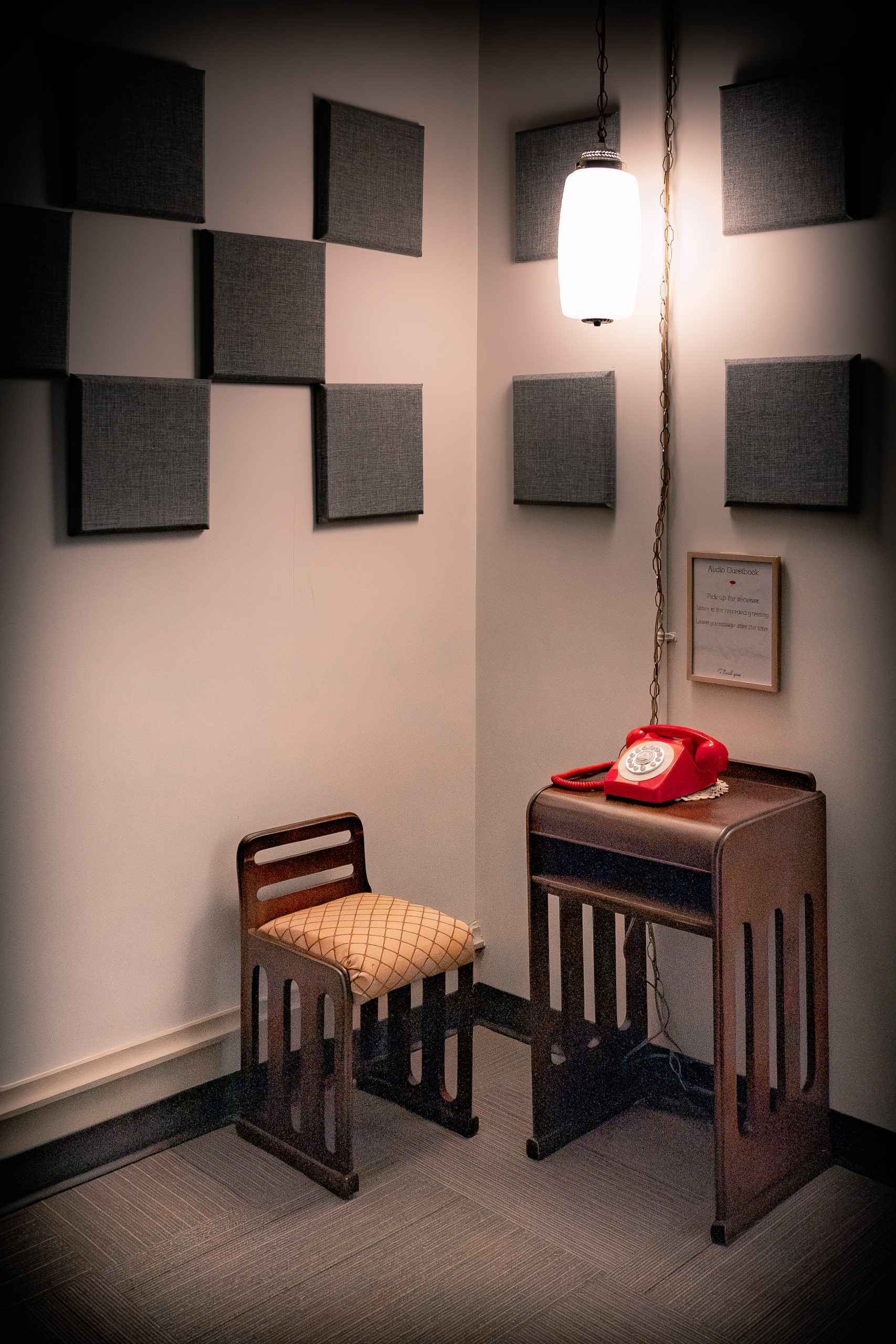
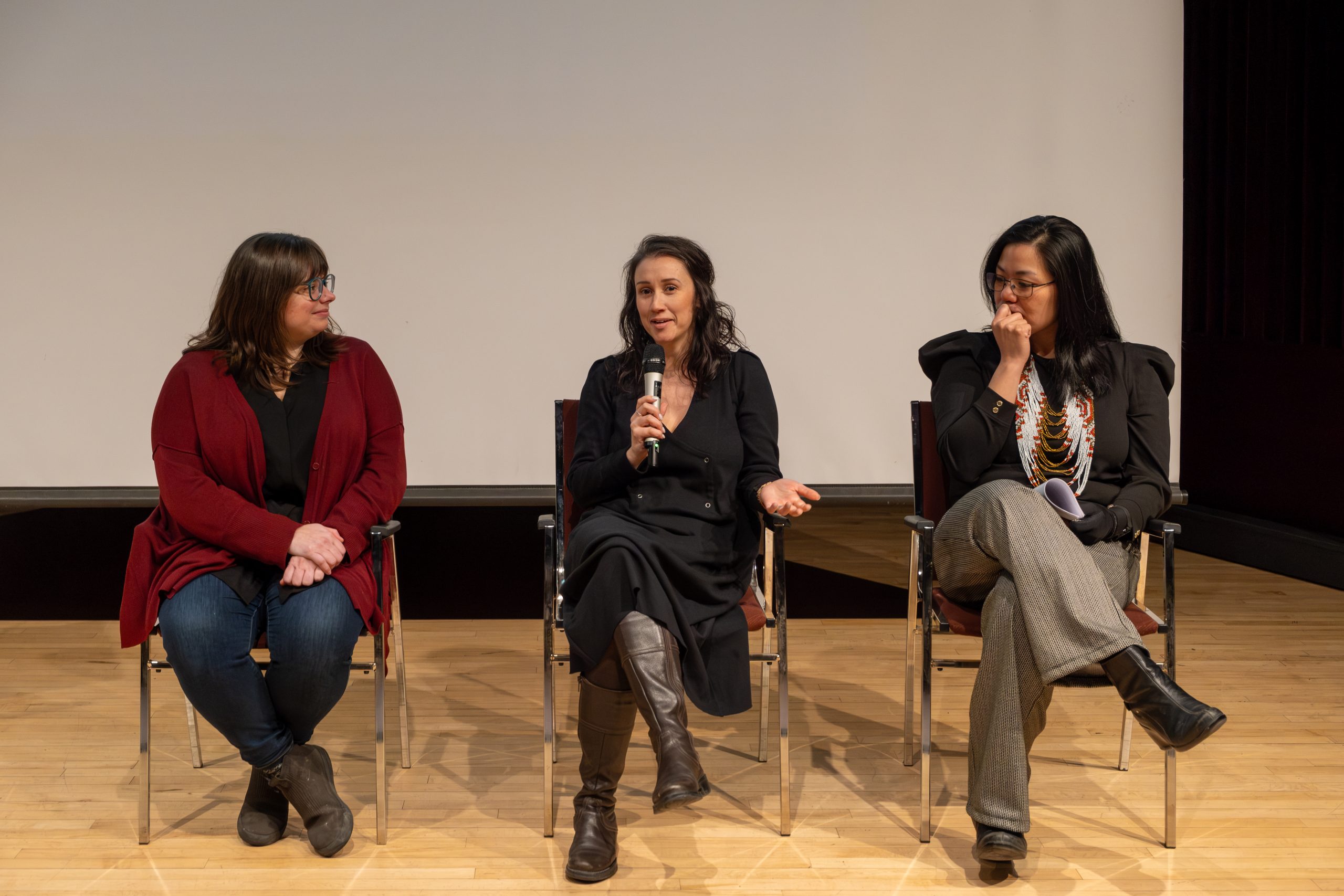
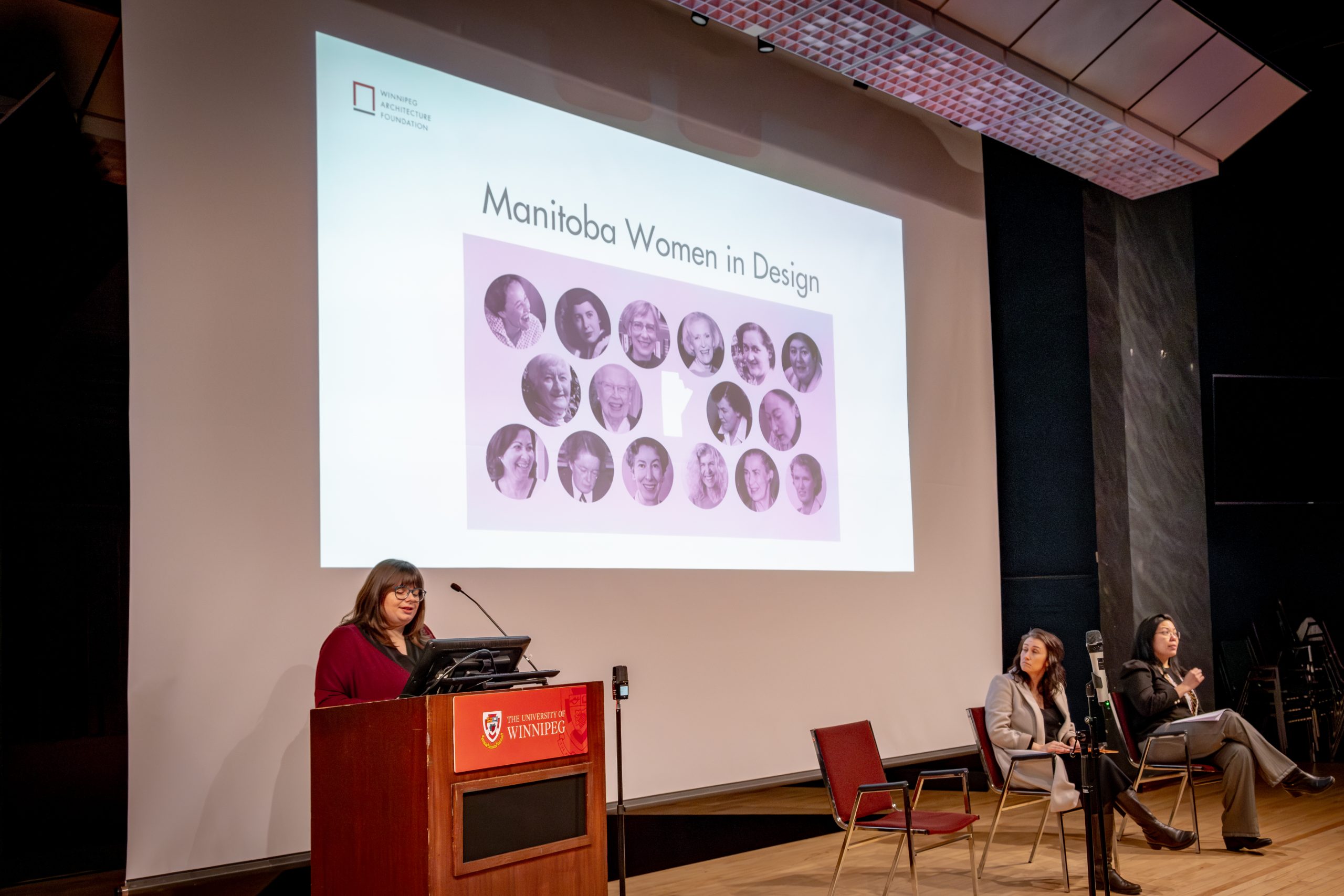
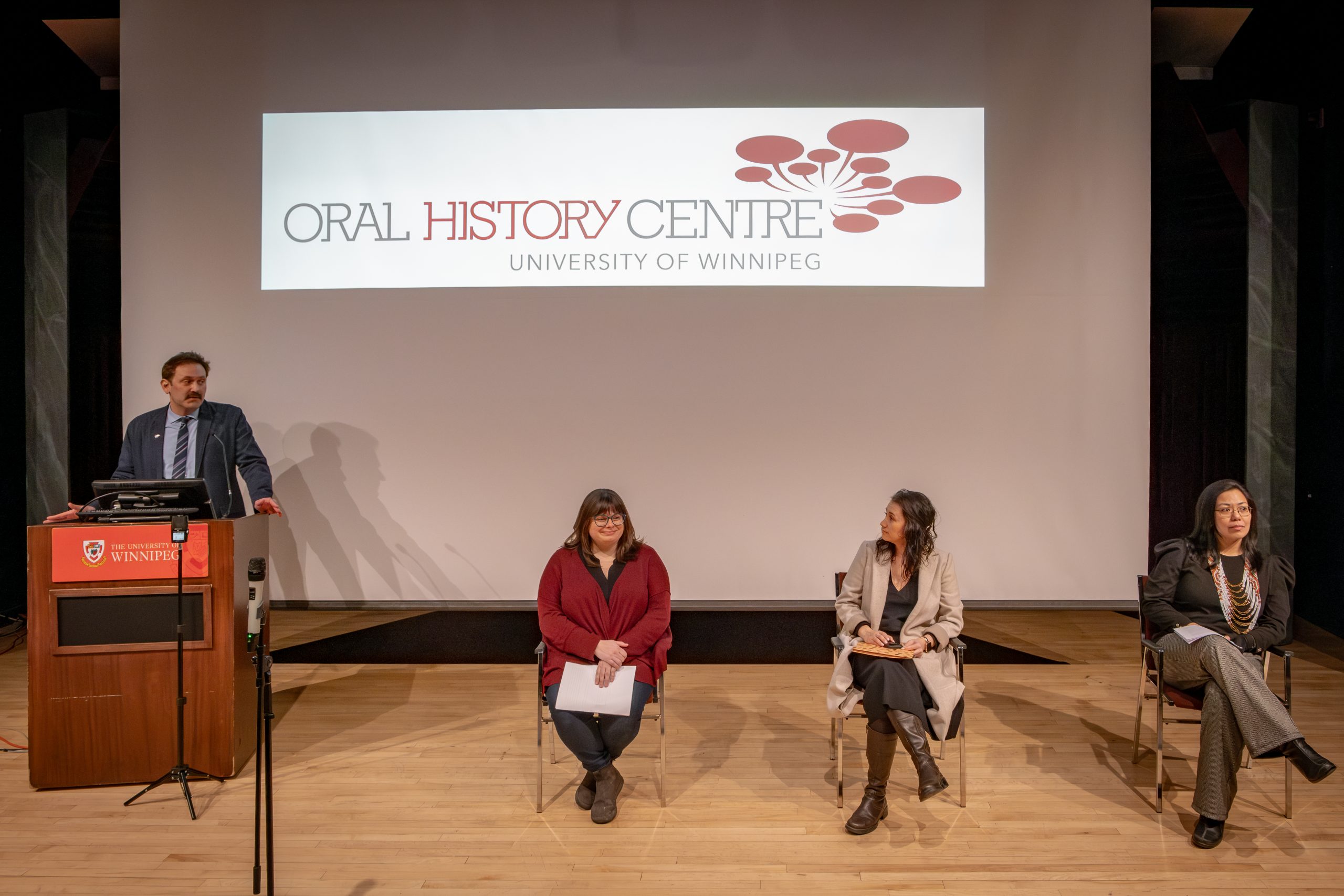
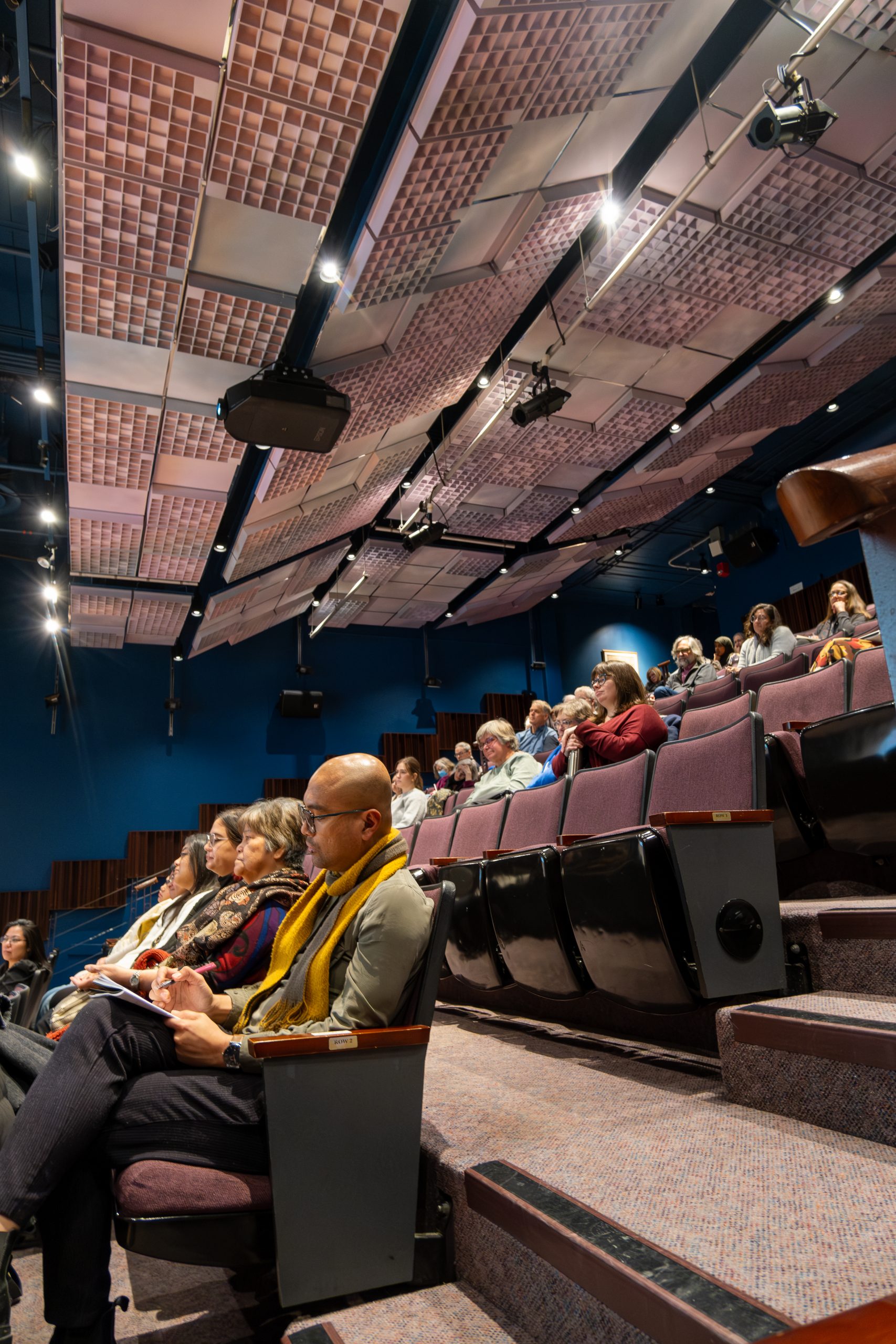
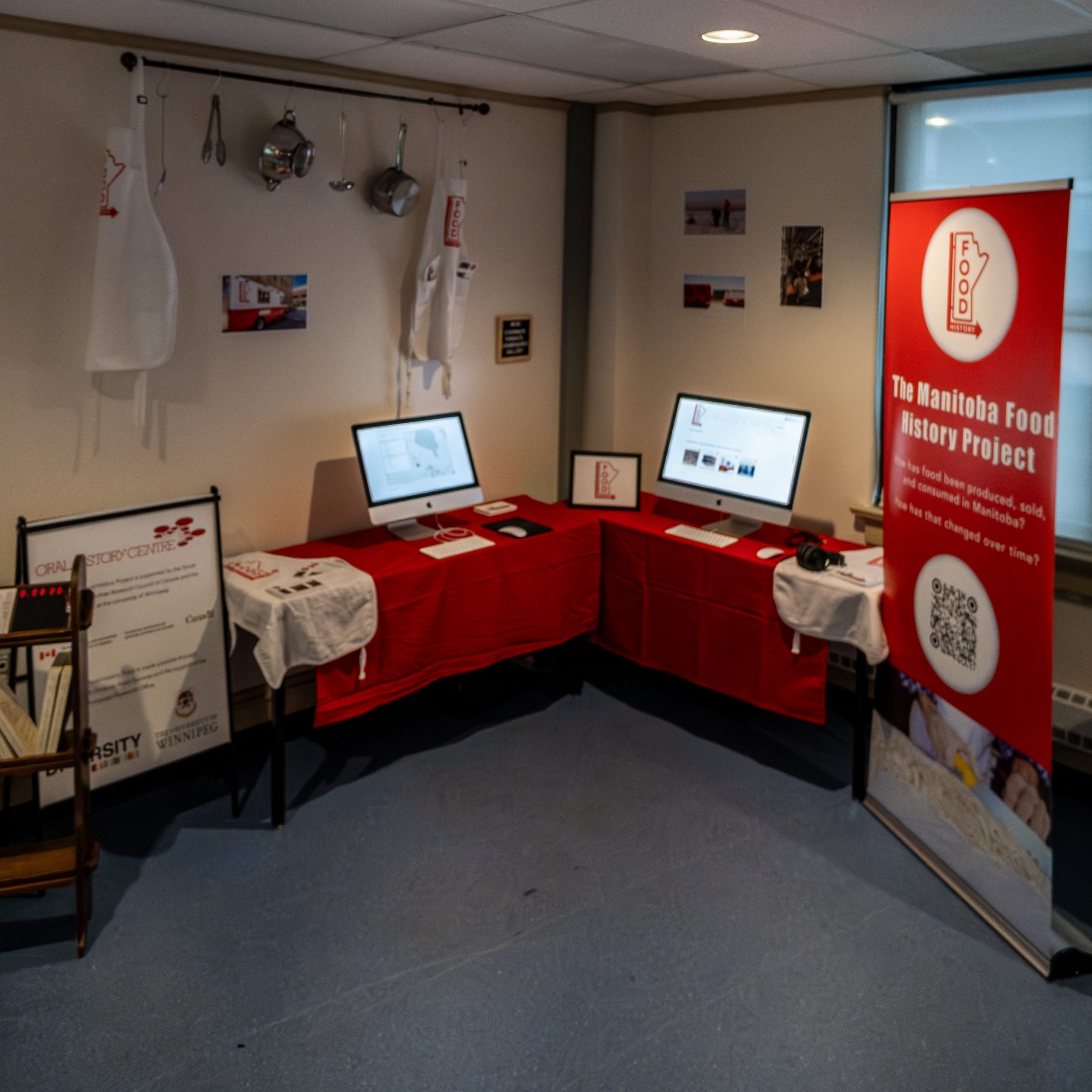
+0
About this Recording:
Marieke Gruwel (Winnipeg Architecture Foundation)
“The WAF Oral History Program”
On November 30, 2024 Marieke Gruwel presented the achievements of the Winnipeg Architecture Foundation’s Oral History program to the attendees of the Oral History Centre’s 10th Anniversary event focusing on the “Manitoba Women in Design” project.
Marieke Gruwel is an art and architectural historian based in Winnipeg. She holds an MA in Art History from Concordia University and a BA (hons) from the University of Winnipeg. Marieke is the Executive Director of the Winnipeg Architecture Foundation and her book, Manitoba Women in Design, will be released in 2024.
Marieke Gruwel (WAF) - “The WAF Oral History Program”
About this Recording:
Brielle Beaudin-Reimer (Sage Research & Consulting Inc.)
“Reflections on Using Oral History: An Approach that Values Red River Métis Lived Experiences in the 20th Century.”
On November 30, 2024 Brielle Beaudin-Reimer spoke about her experiences of using oral history methodology in the absence of more traditional records in the creation of community-led Métis research to the attendees of the Oral History Centre’s 10th Anniversary event.
Brielle Beaudin-Reimer is a Michif woman born and raised in St. Eustache, Manitoba, and a citizen of the Manitoba Métis Federation. She is currently living and raising her own family in Winnipeg. Brielle earned a BA in History & French, and an MA in Indigenous Governance at the University of Winnipeg and is currently completing her PhD in Indigenous Studies at the University of Manitoba. She is also the founder of Sage Research & Consulting Inc., a Red River Métis-owned and led research and consulting firm, that supports community-led research agendas and strategic program development.
Brielle Beaudin-Reimer (Sage Research and Consulting Inc.) - “Reflections on Using Oral History”
About this Recording:
Darlyne Bautista (PhD Candidate, University of Toronto)
“Pagkapa-kapa as Oral History: Reading Silence and Refusal in the Sewing Roots Kasaysayan Project in Winnipeg.”
On November 30, 2024 Darlyne Bautista shared her experiences conducting oral history research with the attendees of the Oral History Centre’s 10th Anniversary event. Bautista’s talk explored the intergenerational and cultural dynamics of documenting her family’s history as part of the broader ‘Sewing Roots Kasaysayan project,’ a history of Winnipeg Filipina garment recruits of the 1960s and 1970s.
Darlyne Bautista is a PhD student in History at the University of Toronto. Her current research explores “transnational affect” and “intergenerational care” through the oral narratives of Filipina garment recruits of the 1960s and 1970s. A proud North-end Winnipegger, Darlyne graduated from St. John’s High before completing her BA (Hons) in History at the University of Winnipeg. In 2021, she received the Social Sciences and Humanities Research Council Canada Graduate Scholarship – Doctoral.

